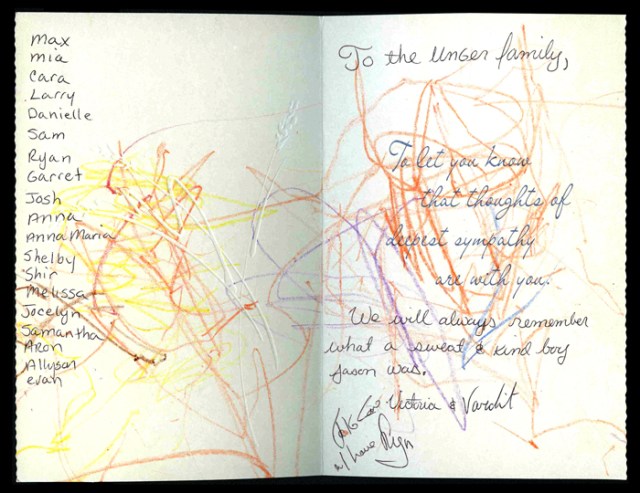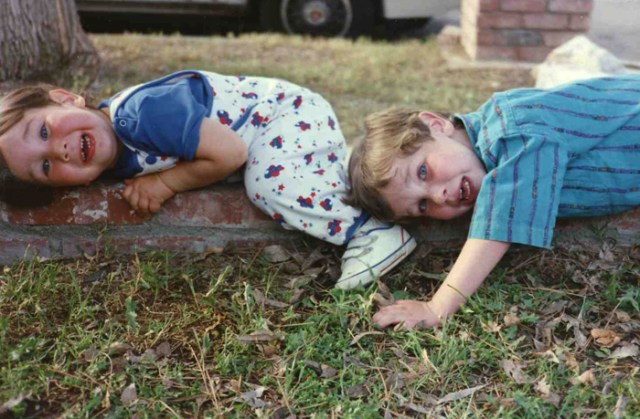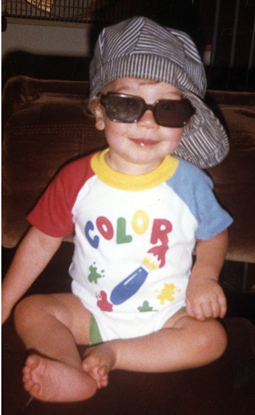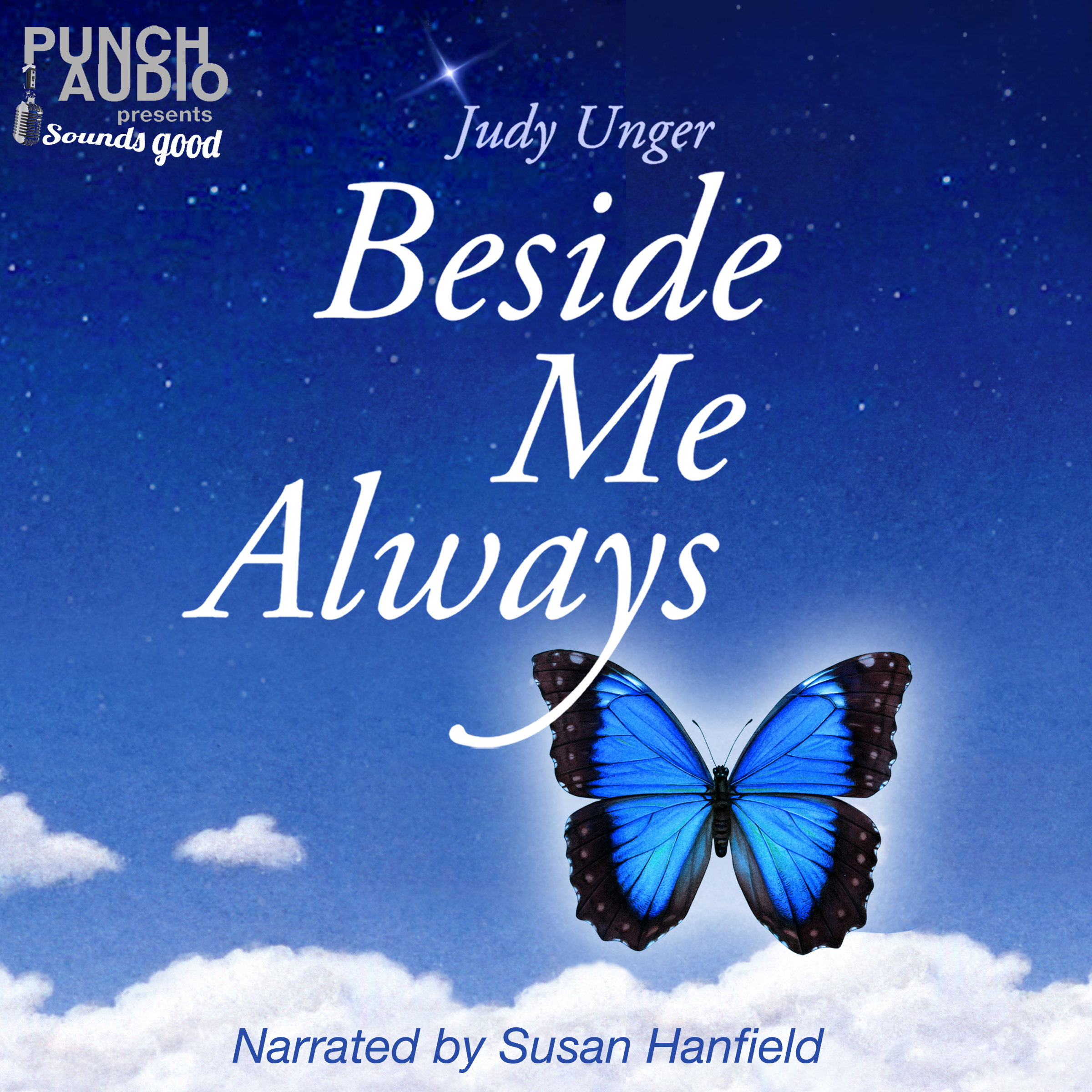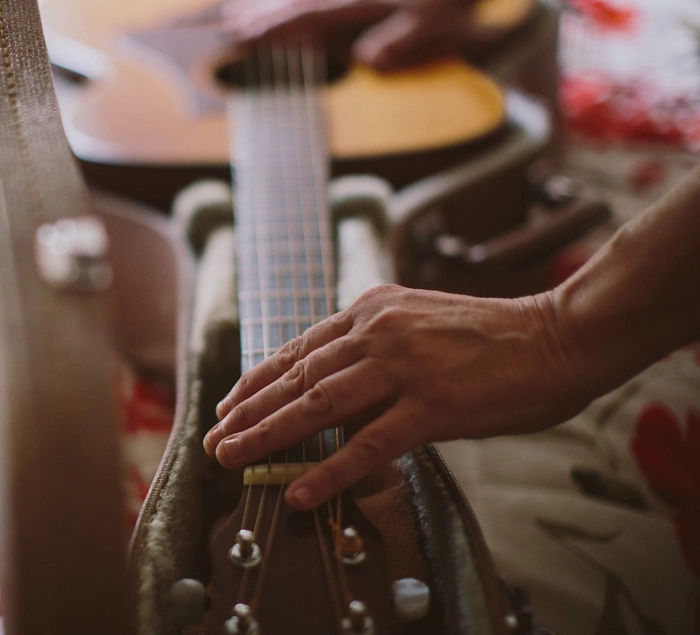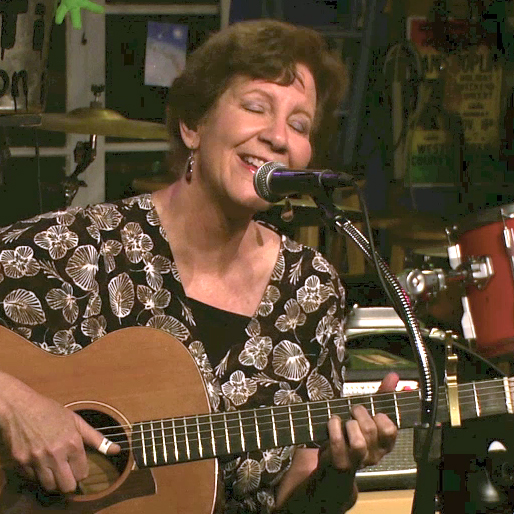“Difficult questions to ponder”
On Dec 6, 2010, Sam wrote:
Judy, I have a few, grief related questions:
1). What was the most isolating part of the grief experience for you? Was it that others couldn’t relate to your loss of a child because they just couldn’t imagine such a thing and didn’t go there? Was it that you isolated yourself from others because your experience set you apart, and made you “different” to the extent that you no longer had anything in common with most people? Was it that even others that had a similar experience could not be bonded with because they were hurting too much? I note that other grief experiences, such as the loss of a parent or sibling do not appear to be as intense, perhaps because it is expected that we will all go through this at some point, and thus does not seem unusual.
2). I remember when I was speaking with my wife’s grandmother when she was alive, that she had lost several children (4 out of 12 I think). My dad’s mother lost a son to pneumonia. My great grandmother had lost a child, I believe. None of them appeared to be impacted as much by grief as today’s parents are…I wonder why? Was it the commonality of experience…I mean, it was almost expected that not all of your children would survive…no antibiotics, TB running rampant, poor surgical technique…I wonder if today’s medical advances have led everyone to expect that every child will survive? Furthermore, many children that would have previously died at birth are being saved through heroic measures, but then may go on to live with significant disabilities, or even die a few years later. I wonder if it is harder on parents that have time to bond with a child for a short time, a child that would not have even survived a decade earlier?
3). What would the Judy of today tell the Judy of 23 years ago if you could go back in time. Were you able to learn anything over the years that would have made your grief experience more manageable?
4). One of the responses you shared with me from the grief group sounded really desperate…almost suicidal (I think it was a woman who had both a stillborn and had lost a stepson). Are suicidal feelings more common among parents that have lost a child? Are suicides more common? Has your discussion group ever had to make an intervention or tried to do so?
5). Do grieving parents wish that they had never had their child to begin with, if they were going to die so young? Is it better to have experienced their child for a short time, or better not to have known their child at all? (Theoretical to be sure, since no one is given that choice, but the answer probably strikes at the core of how a person has dealt with their own experience, and the level of growth they have achieved.)
Judy…I certainly mean these questions to be thought provoking, definitely not pain provoking! … Sam
On Dec 6, 2010, Judy wrote:
Wow, Sam. Thanks for taking the time to write this.
I think I could write a lot – boy, you’re going to really help me write that grief book!
Judy
“Honest answers to difficult questions”
Up until now, I have tried to speak about grief in general terms, but at this juncture, I am speaking about a particular loss, the loss of a child.
1) REGARDING ISOLATION
It is unanimous that losing a child is one of the hardest losses because it does go against the laws of nature. Parents are supposed to die first; they are not supposed to outlive their children.
I’ve tried not to say that too much because I’ve wanted to get away from comparing grief.
When I watched a friend who lost her mom suffer a lot – I didn’t feel better thinking, “Mine was worse.” Often, people have said to me, “I shouldn’t complain about my loss – yours was so much worse!”
I never want anyone to discount their grief anymore in that way to me ever again. It is simply not helpful for either of us!
Regarding isolation, all of my comparing was because it seemed like no one could understand my level of pain.
I have said before, I was “grief centric.” I went through a period of time where I was certain “mine was the worst!” I was even smug about that! If it were an adult child that had died, I felt my situation was worse because of all my “involvement” with Jason’s care. If it were an infant, I felt I had more time to bond and therefore, I suffered more with Jason’s loss.
I have felt terribly sad about what our supportive friends, Josh and Jeanne endured. Many of our other friends (including myself!) came right out and let them know that they had “only lost a baby,” and that it wasn’t comparable to our situation with Jason! I am amazed that it did not deter them from continuing to hang around to comfort Michael and I.
As I learned from my Romanian friend, Magda, I was very wrong about this comparison! Magda has severe, progressive MS and I wrote about her on Post #8 TENNIS, THE THREAD IN MY LIFE’S FABRIC.
Here is a message from Magda that I received today:
On Dec 9, 2010, Magda wrote:
PAIN IS DIFFERENT BECAUSE WE ARE DIFFERENT…NOW IT IS OK FOR ME TO SAY IT WAS BETTER MY SON DIED AFTER 10 DAYS INSTEAD OF A DISABILITY TO MAKE US BOTH SUFFER.
I NEVER WAS OR I NEVER WILL THINK OF SUICIDE BECAUSE OF MY FAITH IN GOD…I WOULD LIKE TO TELL THOSE PARENTS SUFFERING THAT I’LL PRAY FOR THEM…THEY NEED SOME TIME TO REALIZE THEY ARE NOT ALONE AND ALL OF US SOONER OR LATER GO THERE!!!!!!! LOVE YOU, MAGDA
I know that faith in god has sustained and comforted many people in their grief. I am envious of that, because I have always been “uncertain” in my beliefs. I have my moments of spirituality, but not with confidence.
I know I have written that, “I wanted to die.”
That statement is less about feeling suicidal and more about how difficult it was to live with so much pain. It really did seem like there was no “end in sight.” I believe my hope of recovery revolved around just “hanging in there.” I focused on the baby that I was carrying, as well as trying to alleviate the pain of my oldest son’s grief at the time.
I was isolated simply because my existence was completely “out of the land of the living.” I marched to a different beat than other people because my thoughts were repetitive and anguished. It was only a plodding existence at best. All of my energy was forced into simply surviving for the sake of my living children.
I remember I would just spend an entire day sitting on the couch with my three-year-son watching videos of Jason. It kept Jason alive for a while. It helped my non-verbal child cope with the silence, by filling our house with Jason’s singsong voice.
2) REGARDING BEREAVEMENT IN THE PAST AND THE PRESENT
I personally cannot imagine there is any difference between the loss of a child in 2010 and the loss of a child for a Neanderthal. I am certain there has been significant misery throughout history whenever children died.
It is a primal, human attachment to protect our child. It might just seem like people are more impacted in the present because it is talked about so honestly and openly. I imagine that perhaps child loss was so prevalent in the past; there were a lot more people to offer support.
Just because losing a child was more expected in the past, I don’t think it was less painful for parents. I remember reading something Abraham Lincoln had written about losing some of his children – his words were painfully honest and spoke as any parent today might.
The only reason it might appear that elderly people have “coped well” is perhaps because many years have passed since their child died. I don’t like to use the term that “time heals,” but with time – the acceptance and distance certainly does diminish the intense pain.
Often, bereaved parents feel safer expressing their pain with others that have gone through it. It is truly like a “club” in that respect.
On Dec 9, 2010, Lori wrote:
I remember once talking to my brother-in-law’s mother, who had lost 1 of 9 children. She spoke to me about her child as if he died yesterday, when he had actually died 30 years before. My brother-n-law told me he had never heard her speak about her dead child like that to anyone. In fact he said he had never heard her talk about him to any of her living kids. I think she spoke to me about him because she knew I could relate to her. Maybe she never spoke about him to her kids because she didn’t want to burden them with her pain. I don’t believe parents in the past were not as impacted by grief as parents today. I think they didn’t express it as freely and kept it to themselves.
Having lost a child and a parent I definitely feel that there are two, separate types of grief. When your child dies you grieve for the future you will never have with them. When a parent dies you grieve for the past you had with them as a child, and the future that they will never know their grandchildren.
Love, Lori
I want to answer Sam’s question about bonding and medical science extending lives. I was aware that Jason would never have lived beyond a few months were it not for his first surgical procedure.
My feelings on this subject are definitely in the minority. I have heard over and over how grateful bereaved parents were for the time they had with their children. Because I felt differently, that often was difficult for me.
I actually wished Jason had died when he was an infant. Medical science kept him alive, but it was much harder for me – probably for him, too. My life with him was intense and exhausting. Although he had smiles and I had memories of him, there was so much pain associated with those five years. I often felt like my youth was stolen away and I had so much less energy to parent my other children. I used to feel “guilty” expressing these feelings, but I’ve learned that honesty has helped me.
Because I feel Jason’s love in my life, I know he would want for me to feel better and express this.
3) JUDY OF THE PAST AND JUDY OF THE FUTURE
This question was very interesting for me. First off, I’m fairly certain my thoughts about grief haven’t changed over the 23 years. I hold all the same values and beliefs as I did early on in my grief.
If I were able to go back and talk to myself, I would have liked to tell Judy of the Past that she would someday sing again. I don’t think she would have been able to hear that, because it didn’t seem possible. She would not have believed it.
Perhaps my story might help others, but not while they’re in deep grief – When my grief was fresh and raw, it used to make me angry to hear about how others had recovered. I assumed they didn’t have the attachment I did. I also hated the word “recovered.” Most bereaved parents will say, “There is no recovery, only acceptance and adjustment. It is forever.”
Still, I would want my book to be inspiring. I think my story is more about how I exited “Zombieland.” It is one thing to experience pain, and another to live without any emotional connection to life.
I was kept in that existence for decades because I was a caregiver. I never was able to truly let go of grief because too many challenges continued to come my way.
I think there are a lot of people like that.
4) SUICIDE AND BEREAVEMENT
I don’t feel qualified to answer this question. I experienced hearing countless, heartbreaking stories from anguished humans. However, because it became routine – it was generally not cause for “suicide intervention.”
I used to meet regularly with a few, bereaved moms on a weekly basis. I remember them all talking about the fact that none of them used seatbelts anymore. They really didn’t care if they were killed in an accident. I understood, but still wore mine.
Sadly, I’ve watched people deteriorate through the pain of their grief. Heavy smoking, drinking, drugs, and self-medicating is extremely common. Also, the stress often destroys one’s physical health over time. Divorce is commonplace.
When a child dies, a whole family is affected – especially sad, are the siblings who long for their parents’ attention and comfort, but have also lost their parents to grief. Grandparents suffer tremendously, as they grieve their grandchild and watch their beloved child’s heartbreak unfold.
5) WHETHER OR NOT A CHILD MIGHT HAVE LIVED
This is a very difficult question to answer. I have pondered this question in the past, and it was always confusing for me. It wasn’t helpful and never led to comfort. I have always wished that I could have avoided the experience of grief and anguish.
My answer was always an unequivocal, “I wish Jason had never been born and that I had never suffered such a loss.
I just finished writing that I have also wished Jason hadn’t lived as long as he had due to medical science!
But my insight has come to me. I have changed my thinking after twenty-three years of grief!
I was about to go back and change what I wrote only a few paragraphs ago. But I won’t. I’ll leave it there to remind myself that my insight hit me at this moment!
It was only this year that I discovered so much joy.
I would not trade 23 years of grief for the joy I’ve experienced this year with my writing and music.
Working through my grief allowed me to do something I never dreamed was possible.
If I hadn’t experienced Jason’s death, my life would have been ordinary. I might never have written so many stories and songs as a result.
With my own death, I would have left this earth without leaving a “mark.”
Now I feel my life is truly meaningful.
Jason definitely left his mark and will live on through my music and words.
On Dec 10, 2010, Sam wrote:
Judy, I’ll take some time here to respond to the following thought:
You wrote to me yesterday these words:
“I had wished Jason had died when he was an infant. Medical science kept him alive, but it was much harder for me – probably for him, too.”
I’m sure that was a very hard sentence for you to write. And I’m sure that many others have reminded you about the good times that you two had together…they are obvious even in your pictures! Who wouldn’t want their child to “love them more than all the cities”? That’s priceless! But still, knowing that you have considered all of this…those memories are still overwhelmed by your grief!
But, lets look at this another way. Jason is the central person in your life, the focus. He was so important to you and your being that you were writing songs about him before he was born! And I think that one of your great tasks in life is to change the above sentence…to make Jason’s life so important that it is unthinkable that he shouldn’t have been with you for five years. You have already started to do that…by being involved in compassionate friends, by writing your blog, by writing to the grief forum, and by all the counseling and sharing you have done that is not documented in an email or blog.
And the more that you can do to help others understand and survive their own grief process, the more you bring justification to Jason’s life, and bring those five years meaning. Do you see? Jason’s mission in life was to help you understand your mission in life. He could never have accomplished that if he died as an infant, and every day that you spend using your insight and wisdom to help care for others slowly changes the above sentence to the point where it simply isn’t true.
You bring tremendous merit to Jason’s existence (which is solely by your choice…no one is making you do any of this), and I hope that you won’t minimize or discount the importance of what you are doing…for others, for yourself, and for Jason. Have a good day!…Sam
On Dec 10, 2010, Judy wrote:
Wow, what an interesting morning I’ve had!
I woke up early to write more as a follow up to my last post about grief.
I know you are a busy doc, so I’m honored you have found the time to write as much as you have. If there is a purpose for everything, including Jason, then I think there was a purpose to your coming into my life again after 30 years. You have re-ignited a lot of serious thought for me and that has been outstanding! And of course, more than that – your caring is obvious.
Okay, before I dash off to go slug a few tennis balls (I have not exercised in a week and I can feel it) I want to share something with you.
I finished my follow-up of writing this morning before I got your message.
I came to the realization of what you just wrote me all by myself.
How interesting that my realization was about how sharing my music and writing has helped me personally so much. The irony is at the same time I am helping other humans – what could be better?
Judy
On Dec 10, 2010, Sam wrote:
Hi Judy,
We were essentially writing the same thing at the same time! I am so happy that you came to the realization on your own…in that light, one last thought…I would change the line:
If I hadn’t experienced Jason’s death
to:
If I hadn’t experienced Jason’s life
Sam
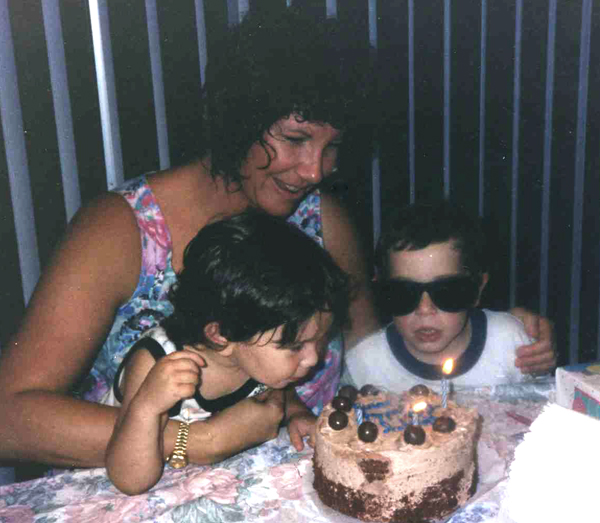
This is the last picture of Jason. It was the night before his surgery. We decided to celebrate his brother’s third birthday a week early. It was the last time we celebrated that birthday for many years.
© Judy Unger and http://www.myjourneysinsight.com 2010. Unauthorized use and/or duplication of this material without express and written permission from this blog’s author and/or owner is strictly prohibited. Excerpts and links may be used, provided that full and clear credit is given to Judy Unger with appropriate and specific direction to the original content.

